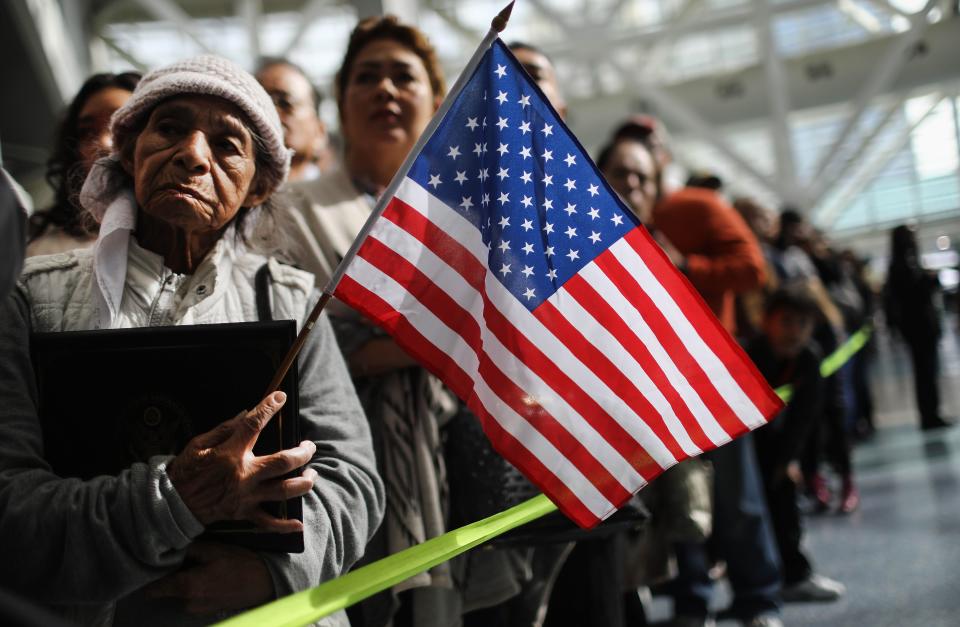Hidden Common Ground: We found that Americans are more united than it appears
It is one thing to say that Americans often disagree. We are a large, diverse, opinionated people in a rapidly changing world. Of course we will have our share of differences and arguments.
It is another thing to say we are profoundly, even hopelessly, divided on virtually all the important questions of our times. But that is the story we are relentlessly told via news pundits, national politicians and malicious foreign actors.
By this account, America’s “tribes,” whether defined by partisan affiliation, race, the urban-rural divide, ideology or otherwise, can neither stand nor understand one another. Like a massive and virulent game of telephone, these tales wend their way into our social media channels, get recycled on the 24-hour news cycle, and make it increasingly hard to imagine that Americans can find common ground or work together for the common good.
Fortunately, this dispiriting narrative is inaccurate, a lesson learned throughout the Hidden Common Ground 2020 Initiative. “HCG” has been led by the nonpartisan Public Agenda (where I work) and USA TODAY, and includes as well America Amplified and the National Issues Forums. The partnership has worked throughout this election season to inform, engage and empower the American public with an emphasis on where we agree even in these contentious times.

HCG is one of a growing number of new and renewed efforts to reknit our frayed social fabric. More in Common, The Better Arguments Project and the Bridge Alliance are just a few organizations, initiatives and consortiums working in this arena. The best are doing so without the crutch of nostalgia for a time when supposedly all was well, but rather because, as Martin Luther King Jr. once said, “We all came on different ships, but we’re in the same boat now.”
More united than it appears
We found that the American people themselves believe they are less divided than they are made out to be by politicians and media pundits, and our research, even during a contentious election year, has shown this to be the case.
Across partisan lines, for example, majorities of Americans support many measures to increase economic opportunity, security and fairness. These include infrastructure investments, retraining programs, affordable child care and incentives for businesses to keep jobs in the United States.
We found as well a strengthening consensus that we ought to raise the minimum wage: While we reported in February that 66% of Americans favored this move, our September report shows that support rising to 72%, mostly because Republican support increased from 48% in the earlier survey to 62% in the more recent one.
The search for agreement not only helps mark a path that Americans are ready to walk to address tough issues, it also illuminates those areas of authentic (as opposed to ginned up) disagreement that we need to navigate and work through to make deeper progress.
Although we found many areas of agreement on how to address racial bias and excessive use of force against people of color in policing, police budgets tended to divide the political parties. Just over half of Democrats (56%) support diverting money from police budgets to social services, while only 14% of Republicans and 22% of independents support such a reallocation.
Focus on real differences
In our view, the nation will be much better able to deal with our true disagreements if we are not constantly and falsely being told we are deeply polarized on just about everything, with the most extreme voices put forth to “prove” the case.
These are just a few of the many insights unearthed in this year’s work, which culminates today with more than 80 stories of Americans across the country working together for the common good. In many cases, these are “strange bedfellows” stories of collaboration across supposedly unbridgeable divides, putting the lie to the notion that Americans are so hopelessly divided they are incapable of working together.
As the nation emerges from a contentious election, a brutal pandemic and a cratered economy, can we resist the forces of division and begin the essential tasks of building a healthier democracy, a fairer economy and a more just society?
Our work this year on Hidden Common Ground offers no guarantees; it does, however, suggest that it is possible and offers a place to begin.
Will Friedman is president of Public Agenda. Follow him on Twitter: @wkfriedman
You can read diverse opinions from our Board of Contributors and other writers on the Opinion front page, on Twitter @usatodayopinion and in our daily Opinion newsletter. To respond to a column, submit a comment to letters@usatoday.com.
This article originally appeared on USA TODAY: Why Americans are more united even in an election year than it appears

